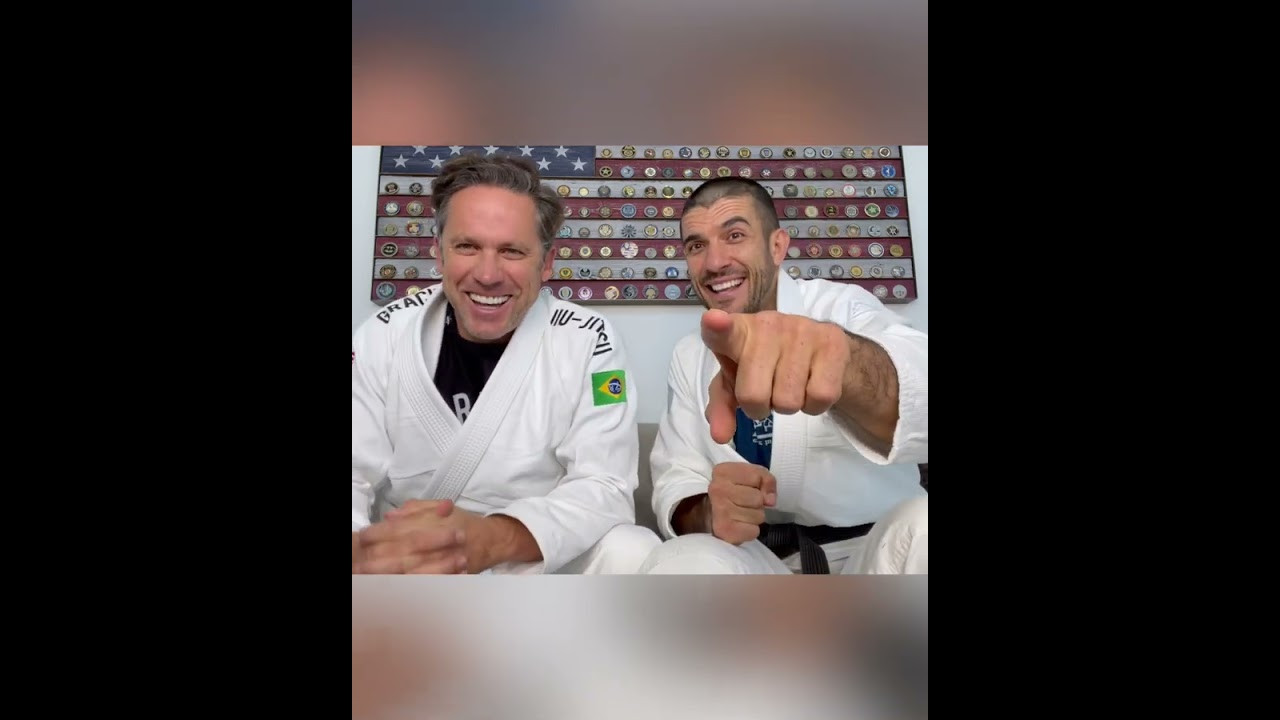Is the “Movie” Over at 51?

You’re never too old to start doing jiu-jitsu. True, it’s never easy to walk into any space as a novice when you’re in your forties, fifties, or sixties. However, with jiu-jitsu this is more a matter of leaving your emotional comfort zone than putting yourself in physical danger, especially when you train with accredited instructors from the Gracie Academy. If you can overcome the familiar narrative that you can only start doing things when you’re in your teens or twenties, and that you can’t have a career, a family, and new interests, you can learn jiu-jitsu.
As Rener Gracie notes in the below video, instructors from Gracie University are trained to introduce people to jiu-jitsu to make sure it’s fun, it’s safe, and it’s accessible for everyone.
The man with Rener Gracie in the above video is Jean Dousset. You’re seeing him just minutes after his first jiu-jitsu class at the age of 51. Though he’s been watching MMA fights for a long time and has known about jiu-jitsu for years, he always had an excuse for why he couldn’t do it. Once he finally decided to take the proverbial plunge, he realized that all the negativity had been in his head. You can start learning jiu-jitsu at any age.
Jean also realized a few other things.
It Just Makes Sense
It would be an exaggeration to say that jiu-jitsu is easy. It is a workout. It is exhausting. It will put your body into positions that will feel kind of weird, especially if it is the first martial art to which you are being exposed. Even if you’re young, you will likely wake up in the morning after your first class a little sore.
However, it’s not counterintuitive. Once the moves are introduced to you, it can seem less like you’re learning something new and more like you’re being reminded of something you’d forgotten. “I was really impressed by how quickly you instinctively understand it. Once you’re shown the movement,” Jean said, “it’s very instinctual.”
It’s Not Violent
Jean was also surprised to find how little jiu-jitsu relies on strength or reflexes or agility; it’s about learning proper technique and perfecting the execution of that technique.
This set off a lightbulb in Jean’s mind. He’d seen a lot of viral videos of altercations. In most of these videos, people wildly throw punches and flail around when the fight goes to the ground.
However, in the videos where one of the people involved knows jiu-jitsu, the dynamics of the fight are completely different. The one who doesn’t know jiu-jitsu still flails around, but the person who knows jiu-jitsu is calm, confident, and moves with conviction to establish control. Something strange then happens…nothing. They just maintain control until the authorities arrive or other people intervene to end the altercation. In the case of the specific video the two discuss, the person who has established control actually says, “I have control.”
This dynamic suddenly made sense when Jean was on the mat with Rener.
It’s the Little Things
In addition to being intuitive and non-violent, Jean really gained an appreciation for the level of precision involved in the techniques. Just minor adjustments in the angle of your arm or the position of your leg can make an enormous difference in how successful your defense or attack will be. While it may take only several months or maybe a year to learn the fundamentals of jiu-jitsu, one can spend a lifetime learning the almost infinite subtleties of these moves.
You No Longer Feel Defenseless
When you don’t have a firm grasp of a martial art, whether it’s jiu-jitsu or any other discipline, it can be overwhelming. You can feel scared. You can feel as though you have no control over a situation should an altercation arise that endangers you or someone you care about.
For Jean, just one lesson gave him a taste of the confidence that comes with knowing a martial art. It let him know that he can develop the skills he needs to defend himself and his family. “It’s within reach right away,” he says.

